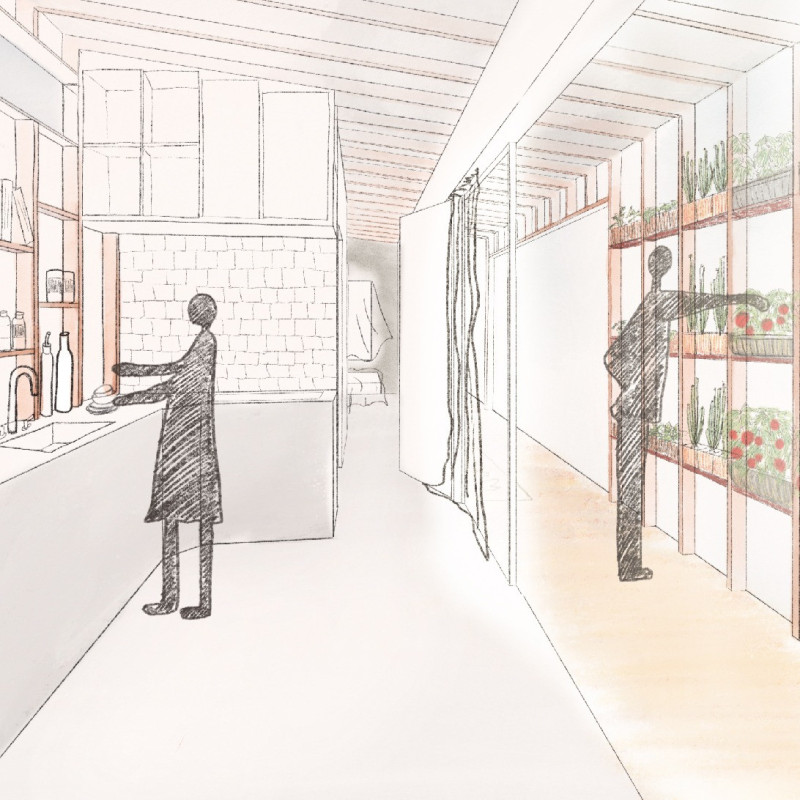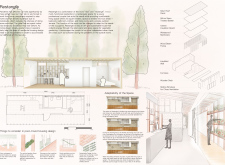5 key facts about this project
Restangle is designed for a young professional couple and fits within a compact area of 25 square meters. The project responds to the needs of urban living, particularly in light of the changes brought about by the pandemic. The focus is on adaptability and multifunctionality, which allows the space to serve various purposes throughout the day. The concept integrates separate areas for sleeping, working, cooking, and relaxation, addressing the demands of a modern lifestyle.
Functional Layout
The layout comprises four main zones: the bedroom, bathroom, kitchen, and living room, along with a private outdoor terrace. Each area is carefully arranged to facilitate daily routines. The arrangement allows the couple to move easily from one space to another, with the bedroom acting as a divider between shared and personal areas. This balance promotes both privacy and accessibility, essential for a harmonious living experience.
Sustainability Focus
Sustainability is a key consideration in the design. Solar roof panels enable the house to generate its own energy, reducing reliance on external sources. The inclusion of vertical gardens allows residents to grow their own vegetables, which supports an eco-friendly lifestyle while enhancing the overall appearance of the home. This effort reflects a response to growing environmental concerns and a desire for self-sufficiency.
Ventilation and Comfort
Ventilation is thoughtfully integrated into the design. Sliding windows allow for natural airflow, contributing to a comfortable indoor environment. This feature enhances air quality and helps regulate temperature, making the space feel open and inviting. The connection between indoor and outdoor areas encourages residents to enjoy fresh air and light, a significant aspect of daily life.
Material Choices
Material selection plays an important role in the overall functionality of the design. The structure is framed with wood beams, providing both strength and a warm atmosphere. Insulated walls contribute to energy efficiency, keeping indoor temperatures pleasant regardless of outside conditions. Waterproof membranes protect against moisture, ensuring the longevity and durability of the building.
The design culminates in a private terrace that extends the living space outdoors, offering areas for relaxation and enjoyment while maintaining a strong bond with nature.




















































